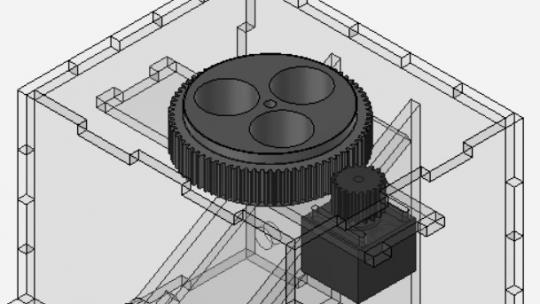Tools used in creating "place" projects, and place-related media projects, recommended.
Placemaking Report gets a fraction of the purchase price of some of the tools purchased, without adding anything to the price.
If a tool is good, and there's no affiliate relationship available, it's still recommended.
This is called "affiliate marketing." It's been around since the 1990s, and was originally considered kind of sleazy. Maybe it still is, in certain circles.
But in the journalism world, it's now legit.
And it's not a bad way to earn some reader support for journalistic projects at a time when advertising is shrinking, and paid subscriptions often require a lot of polite pleading.
Reader Supported
When did affiliate marketing become acceptable?
Perhaps when the New York Times bought Wirecutter in a few years ago -- that made a huge difference. New York magazine also uses affiliate links in its popular Strategist section. CNET has been doing affiliate for years.
The crucial difference: Trust. Readers trust that reporters/reviewers at that those traditional orgs cannot be bought.
The sequence has to be right: you have to evaluate the item first, based on unbiased experience with the product, and then hook up the affiliate link.
The other way around doesn't work. Accepting free products, and then writing a review -- no good, not acceptable.
So this is the point, officially, where you make that pledge: you will only recommend a product that you have personally worked with, and paid for.
No free products are accepted.
All the experience relayed herein has been hard-earned.
Background
Here's an early description of the affiliate model. It feels trustworthy because this company is one that is used by the Cool Tools cluster of publications, which is generally respected for their honesty and impartiality.
One of the main points of the above article is the importance of "full disclosure": you've got to tell readers that you are getting a cut if they buy the product.
Since this is important, here are some more "full disclosure" notices.
- TechRadar is supported by its audience. When you purchase through links on our site, we may earn an affiliate commission. Learn more
- New York Strategist - Every product is independently selected by (obsessive) editors. Things you buy through our links may earn us a commission.
- CNET editors pick the products and services we write about. When you buy through our links, we may get a commission.
- Wirecutter is reader-supported. When you buy through links on our site, we may earn an affiliate commission. Learn more
Furthermore, from Wirecutter:
If readers choose to buy the products we recommend as a result of our research, analysis, interviews, and testing, our work is often (but not always) supported through an affiliate commission from the retailer when they make a purchase. If readers return their purchases because they’re dissatisfied or the recommendation is bad, we make nothing. There’s no incentive for us to pick inferior products or respond to pressure from manufacturers—in fact, it’s quite the opposite. We think that’s a pretty fair system that keeps us committed to serving our readers first.
Sounds reasonable.
So a disclaimer has been crafted, borrowed heavily from the above disclaimers, and it has been added to every page with an affiliate link. You also link back to this page for more disclaiming, specifically: (1) no freebies accepted; and (2) no product will be recommended unless you've personally worked with it.
This is a fair system that puts the reader first.
Note: just a few weeks after this site posts its first affiliate link, a "recurring reminder" from Amazon arrives:
Anytime you share an affiliate link, it's important to disclose that to your audience. They will trust you more if you are transparent about where you are directing them and why. To meet the Associate Program's requirements, you must (1) include a legally compliant disclosure with your links and (2) identify yourself on your Site as an Amazon Associate with the language required by the Operating Agreement.
To comply with the Federal Trade Commission (FTC) regulations, your link-level disclosure must be:
Clear. A clear disclosure could be as simple as "(paid link)", "#ad", or "#CommissionsEarned".
Conspicuous. It should be placed near any affiliate link or product review in a location that customers will notice easily. They shouldn't have to hunt for it.In addition, the Operating Agreement requires that the following statement clearly and conspicuously appears on your Site: "As an Amazon Associate I earn from qualifying purchases." For social media user-generated content, this statement must be associated with your account.
You can almost feel an Amazon robot scraping the content of this site, looking for that sentence.
So here it is again: As an Amazon Associate this site earns $$$ from qualifying purchases.
You just want to stay out of trouble.
